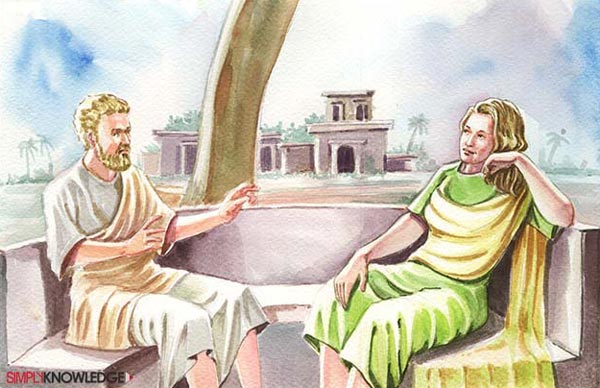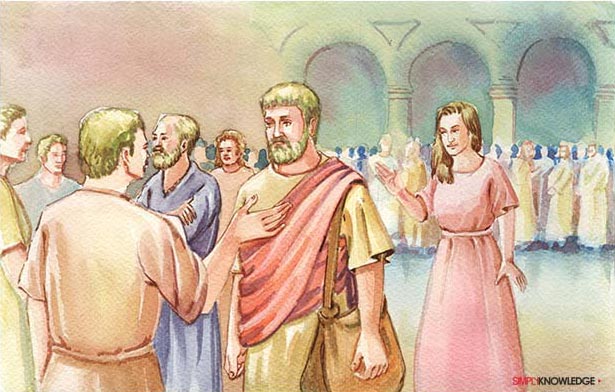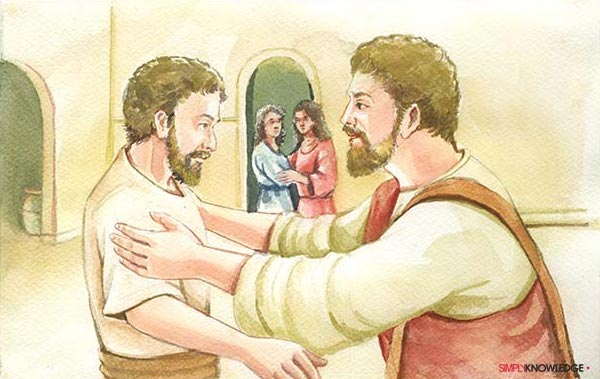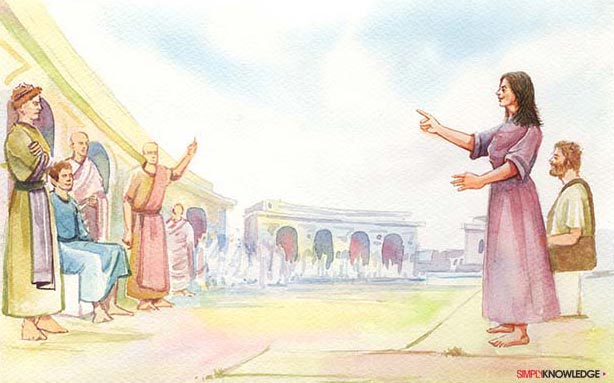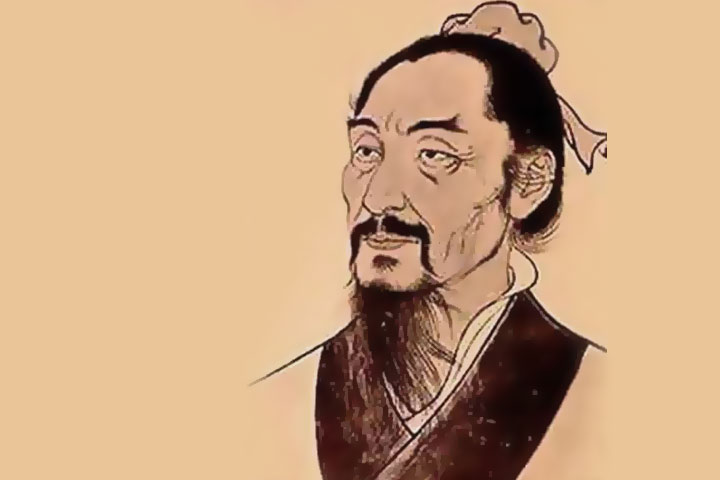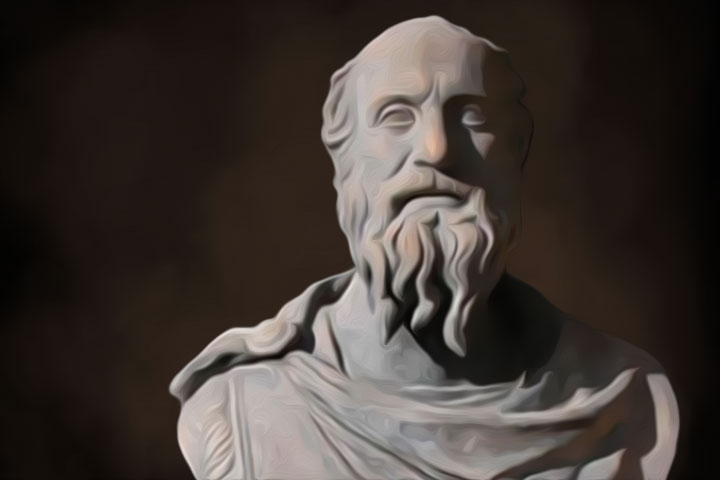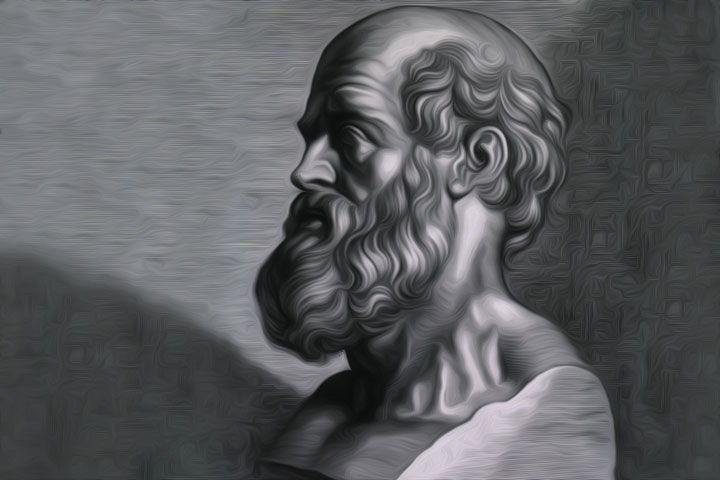
Introduction
“Do I appear to you to have come to a wrong decision, if I devote that time to philosophy, which I otherwise should have spent at the loom?” quipped Hipparchia, chastising the renowned Theodorus the Atheist publicly at a symposium. This verbal joust occurred in ancient Athens between Theodorus, a great ancient philosopher renowned for his impiety and Hipparchia, the wife of Crates, a popular Cynic from the Hellenistic era.
This verbal spat had some truly quaint aspects: Hipparchia, with her famous quote, had just inadvertently laid the foundation for what was to become the famous ‘Women’s Liberation’ movement some 2,500 years later. Because, other than her distinction as being Crates’ spouse and a self- proclaimed Cynic, she was also renowned for invading what were hitherto male-only domains while demanding gender equality in almost every sphere of life ranging from decorous behaviour in public to participation in male dominated areas.

Birth
Hipparchia was born in an aristocratic family of Thrace, in the city of Maroneia, around 330BC. Thrace, during her era, was a Grecian territory. Renowned Greek historian and chronicler Diogenes Laertius, in his epic ‘Lives and Thoughts of Eminent Philosophers’ states, Hipparchia’s parents apparently migrated to Athens in or around 335BC. Her elder brother was Metrocles.

Life
In conformity with then prevalent traditions, Hipparchia’s parents sent her and her brother Metrocles to schools that were exclusively for children from aristocratic families. Hipparchia was a highly talented student who impressed her teachers with her commendable knack for comprehending with ease, the most complex topics.
At home, she was groomed as the future wife of a wealthy aristocrat, as was common during the era. Traditional education and the banal life as the future wife of some aristocrat never appealed to Hipparchia. Instead, she was more interested in studying the various schools of thoughts and their myriad doctrines since Athens was the seat of learning where thinkers were revered by the proletariat and nobles.
When Hipparchia was a teenager, her elder brother Metrocles attended the Lyceum, the prestigious school for thinkers founded by Aristotle, to study psychology under the tutelage of Theophrastus. He eventually left the Lyceum to study under Crates, who had carved a niche for himself among all thinkers as an urbane Cynic.

Metrocles and Hipparchia
Brother Metrocles had a great impact upon Hipparchia: Since females were traditionally barred from attending dialogues and other such public events, she would pester him to narrate whatever transpired at these symposia. The brother would willingly oblige and tell her what he had studied or discovered new in the schools of thought and his opinions. The brother-and-sister team would then debate over various issues.
Metrocles, being a student of Crates of Thebes, would often narrate the teachings of his master and Cynicism- which consisted of living a brazen life, bereft of shame which extolled that humans can become virtuous only by living in accordance with the nature. As a teenager, Hipparchia was fascinated by Crates’ teachings, though she had never seen him or heard him preach.
Such interest by women in schools of thought were considered normal since most aristocrats dabbled in psychology to retain their edge in what they believed was ‘knowledge and wisdom’ required to rule the masses. As was the custom, Hipparchia would have married an aristocrat and hence, such inquisitiveness was not diacritical. Hipparchia secretly dreamed of meeting Crates some day.

A dream comes true
During the Hellenistic era, the common tradition was for wealthy students to host at their residence, their teacher and peers for a dinner and symposium. Metrocles invited Crates and some of his fellow-students to one such event at his home, during which a blithe debate between Crates and his students was held spontaneously.
Allured as she was to Crates’ teachings, Hipparchia heard the debate discreetly and was overwhelmed by the vivacious manner of the teacher and his teachings. Historian Diogenes Laertius mentions, Hipparchia was overwhelmed to an extent, she could no longer bear her excitement. Enamoured by Crates teachings, she spontaneously requested to accept her as a pupil.
Crates, apprehensive that a woman following a Cynic lifestyle would be chastised and face immense adversities, vainly attempted to dissuade Hipparchia from becoming his student. Her parents tried to talk Hipparchia out of her self-induced trance.
Undaunted by the refusals and persuasions, Hipparchia threw a tantrum at the gathering, threatening to either end her life or flee home to join Crates, regardless of whatever inherent dangers such an action would entail. Left with a Hobson’s choice, Crates showed her his tattered cloak and his almost empty rucksack with his meagre belongings, which included a bowl and some lupine seeds for soup. “This is your bridegroom and all he possesses. If you are to be my wife of mine, you must adopt this lifestyle,”said Crates as he cautioned Hipparchia about the insidious dangers of a Cynic’s life in perspective of the opulent lifestyle as an aristocrat’s daughter and prospective wife of a nobleman.

Kyanogamous marriage
Hipparchia, almost 20 years younger than Crates, readily accepted to follow the life of a Cynic and the two were married on the spot: the first marriage between two Cynics. Hipparchia left her palatial parental mansion and luxurious lifestyle, donning a cloak and carrying an empty rucksack with Crates. Though unverifiable, the newly married couple are claimed to have consummated their nuptial bond in public, in an unabashed show of the Cynic teachings of performing natural acts in public. It is debated whether such an act actually occurred since some historians claim Crates used his worn-out cloak to cover themselves and the pretence was to initiate Hipparchia into the Cynic lifestyle.

Happily ever after
Hipparchia embraced the Cynic lifestyle of living like a dog, shamelessly and with scant regard for local mores, with fervent ardour. She would follow Crates everywhere and also perform some of the most difficult chores such as gathering firewood or collecting drinking water. She would be seen frequently on streets of Athens carrying some goods balanced precariously over her head. Indeed, historians credit her for working as hard as an Olympian athlete.

the family expands
Hipparchia and Crates had two children, a girl and later, a boy. She is said to have delivered both these children effortlessly, which some historian credit to her athletic activity and the resulting strong physique. The birth of their daughter, the first of their kids, is considered an unparalleled even since Hipparchia is the only recorded ancient woman to have delivered a child in a public place, without much help from midwives or others. The couple and their pupils tutored the children in various topics. Hipparchia and Crates continued to preach Cynicism and lived as epitomes of that school of thought, through their teachings and actions, even as their kids grew in age.

Angry birds
Hipparchia and Crates had two children, a girl and later, a boy. She is said to have delivered both these children effortlessly, which some historian credit to her athletic activity and the resulting strong physique. The birth of their daughter, the first of their kids, is considered an unparalleled even since Hipparchia is the only recorded ancient woman to have delivered a child in a public place, without much help from midwives or others. The couple and their pupils tutored the children in various topics. Hipparchia and Crates continued to preach Cynicism and lived as epitomes of that school of thought, through their teachings and actions, even as their kids grew in age.

Death
Once again, Diogenes Laertius, the eminent historian and chronicler, fails in his attempts to determine how Hipparchia passed away. There are numerous legends surrounding her death. One anecdote states, she lived to a ripe old age and died of natural causes, continuing to propagate Cynicism till the end. The other states, Hipparchia was afflicted by some sickness, possibly bubonic plague, and refused to take medicines or avail other cures due to her Cynic conformity. She succumbed to the illness aged about 80 years or more. Both these accounts cannot be verified since her works were not recognized by male thinkers.

Women’s Liberation
Hipparchia, a Cynic as she was, attended a major symposium in Athens which was attended by several renowned thinkers of the era. As usual, all thinkers present were men. Hipparchia was seated besides Crates and was actively participating in every debate. By then, she had gained a formidable reputation and was respected by most Grecian thinkers, barring a few who secretly resented her.
Among these was Theodorus the Atheist, whose teachings that god does not exist, ranked among the most controversial thoughts in a highly religious Athenian society. Hipparchia began debating about atheism, which piqued Theodorus and led him to mock the sole female debater.
Theodorus, irked at Hipparchia’s persistence, knowledge and wit remarked caustically: “Why do you abandoning the warp and woof and the shuttle and indulge in philosophy?” Unfazed, Hipparchia responded that she had every right to choose whatever she wished to do. The two then engaged in an acrimonious debate. Theodorus, wanting to outwit a woman, commented it was his right to practice philosophy. Hipparchia swiftly countered him saying: “If it is not wrong for Theodorus to do a particular act, then it is not wrong for Hipparchia to do it. If Theodorus slaps himself he does nothing wrong, therefore if Hipparchia slaps Theodorus she does nothing wrong either.”
The witty remark enraged the pompous Theodorus immensely: He attempted to disrobe Hipparchia in the presence of other thinkers and the audience. Hipparchia, on the other hand, showed no outward reaction to Theodorus’ ignominious act. Her affront was appreciated by other thinkers. Having lost face, Theodorus apologized to her and left the venue.

Trivial yet Gigantic
Hipparchia’s reaction to the outrageous comments and acts of Theodorus the Atheist soon became a legend in ancient Greece. While Plato was the first to have thrown his Academy open to female students, none had dared to participate in a symposium. The polemic Hipparchia, during this contentious debate with Theodorus the Atheist, had indeed, proved two major points- that women are capable of performing most functions that men can and, the need for gender equality.
In principle, her argument with Theodorus had set the momentum for a massive movement of today’s era- women’s liberation. Hipparchia had withstood all adversities as a Cynic living on simple diet and a lifestyle sans any comforts. Indeed, her achievement, though largely unnoticed at the time, was recognized by the great Greek historian and chronicler, Diogenes Laertius: Hipparchia is the only female thinker whose biography is contained in his epic compilation ‘Lives and Thoughts of Ancient Philosophers.’

Legacy
Hipparchia’s legacy of seeking gender equality and displaying that women possess the same skills as men is considered an important landmark in psychology. Through her overtly austere lifestyle, she capably demonstrated that women are mentally strong enough to bear every hardship- self inflicted or natural.
Next Biography





